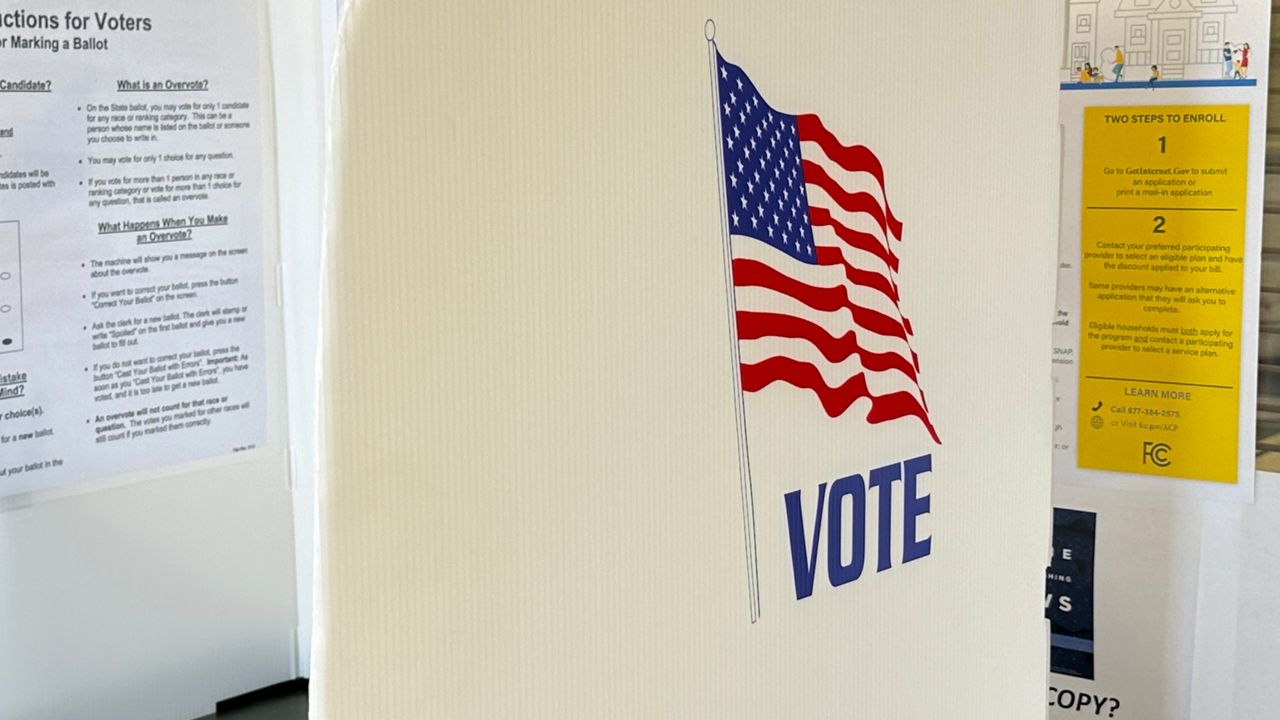Two questions on the Nov. 7 ballot will ask voters to take outdated and illegal language out of the Maine Constitution.
Question 7 proposes to remove a provision that requires those who circulate a citizen’s initiative or people’s veto to be a Maine resident and registered voter.
A federal court ruled that unconstitutional in 2020, citing First Amendment concerns.
As a result, Maine Secretary of State Shenna Bellows said the state no longer tries to enforce the requirement.
Similarly, Question 8 proposes to take language out of the constitution that prohibits a person under guardianship “for reasons of mental illness” from voting, which violates the U.S. Constitution and federal law.
“The federal Constitution trumps the Maine state constitution,” Bellows said. “Those provisions are automatically no longer enforced whether they are written down or not.”
She described both questions as an attempt at a “constitutional clean up.”
“These two constitutional amendments will not change what happens in reality, it will make sure the language matches what we have in law,” she said. “It’s important these two amendments pass.”
Lawmakers agreed, giving both the green light with the required two-thirds support, meaning Republicans and Democrats voted in favor of them.
In testimony to lawmakers in April, John Brautigam, an attorney with Legal Services for the Elderly, noted that in 2000, Maine voters rejected an attempt to remove the language regarding mental illness from the constitution.
A lawsuit followed and U.S. District Court Judge George Singal struck the language down saying it violates the U.S. Constitution.
“Judge Singal ruled that the state may not deny the right to vote on the basis of an arbitrary term such as ‘mental illness,’” Brautigam wrote. “That ruling remains binding to this day.”
One dissenting voice on the issue came earlier this month from Matthew Gagnon, chief executive officer of the Maine Policy Institute, a conservative think tank.
In an opinion piece published Oct. 4 in the Bangor Daily News, Gagnon said while he understands the current language in the constitution is overly broad, he thinks there should be some guardrails to prevent those “who cannot reason through a voting decision” from casting a ballot.
“Given this, I will vote no, but with the hope that in the next legislative session, a new proposal is put forth that actually changes this clause, to both protect the state and Mainers with mental health issues, while also protecting voting rights and expanding them to people who deserve to be enfranchised,” he wrote.
In support of removing the language, Brautigam recounted the various other ways “women, non-whites, convicted felons” and the poor have been denied the right to vote at various times in our history.
He said it’s important to remove the language from the state’s “founding document.”
“This is not just about mental illness and not just about voting,” he wrote. “It is about the kind of society and community we want to be.”



